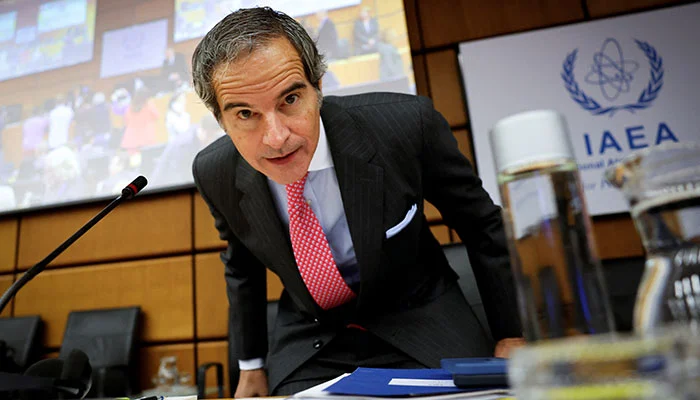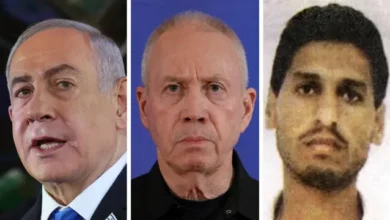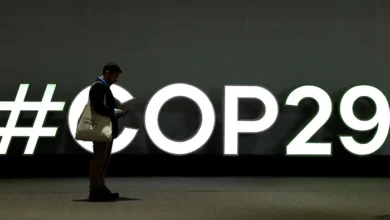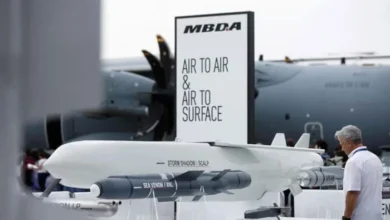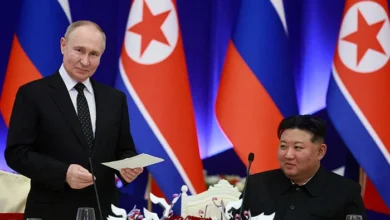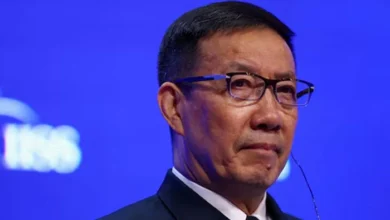The Board of Governors of the UN atomic watchdog, comprising 35 member nations, adopted a resolution on Thursday urging Iran to swiftly enhance its cooperation with the agency. The resolution also called for a “comprehensive” report, aimed at encouraging Tehran to engage in renewed nuclear negotiations.
Britain, France, Germany and the United States, which proposed the resolution, dismissed as insufficient and insincere a last-minute Iranian move to cap its stock of uranium that is close to weapons-grade. Diplomats said Iran’s move was conditional on scrapping the resolution.
Iran tends to bristle at such resolutions and has said it would respond in kind to this one. After previous criticism at the International Atomic Energy Agency’s Board, it has stepped up its nuclear activities and reduced IAEA oversight.
China, Russia and Burkina Faso voted against the text, diplomats in the meeting said. Nineteen countries voted in favour and 12 abstained.
The IAEA and Iran have long been locked in standoffs on a range of issues including Tehran’s failure to explain uranium traces found at undeclared sites, its barring last year of most of the agency’s top uranium-enrichment experts on the Iran inspection team, and its refusal to expand IAEA monitoring.
The resolution seen by Reuters repeated wording from a November 2022 resolution that it was “essential and urgent” for Iran to explain the uranium traces and let the IAEA take samples as necessary. The resolution in June of this year did the same.
The new text asked the IAEA to issue “a comprehensive and updated assessment on the possible presence or use of undeclared nuclear material in connection with past and present outstanding issues regarding Iran’s nuclear programme, including a full account of Iran’s cooperation with the IAEA on these issues”.
Western powers hope that report, due by spring 2025, will pressure Iran into negotiations on fresh restrictions on its nuclear activities, albeit less far-reaching ones than in a 2015 deal with major powers that unravelled after then-President Donald Trump withdrew the United States from it in 2018.
With Trump due to return to office in January and Iran having taken its uranium enrichment far beyond the deal’s limits, it is far from clear whether Trump would back negotiations aimed at setting new limits before the 2015 deal’s ones are lifted on “termination day” in October of next year.
If no new limits are agreed before then, the report could be used to strengthen the case for so-called “snapback”, a process under the 2015 deal where the issue is sent to the UN Security Council and sanctions lifted under the deal can be re-imposed.
Last week IAEA chief Rafael Grossi visited Tehran, hoping to convince new Iranian President Masoud Pezeshkian, who is seen as relatively moderate, to improve Iran’s cooperation with the agency.
Iranian reaction
Grossi formally reported to member states on Tuesday that “the possibility of Iran not further expanding its stockpile of uranium enriched up to 60% U-235 was discussed” in his meetings with Iranian officials, and that the IAEA had verified Iran had “begun implementation of preparatory measures”.
Iran already has enough material enriched to that level, close to the roughly 90% purity that is weapons grade, for four nuclear weapons if enriched further, according to an IAEA yardstick. It has enough material enriched to lower levels for more bombs, but Iran denies seeking nuclear weapons.
Grossi said on Wednesday he had asked Iran to cap that stock of 60% material and Iran had accepted his request.
He told a news conference that day that it was “a concrete step in the right direction”, suggesting that he felt a resolution could undermine that progress.
With the resolution passed, Iran is likely to respond.
Moments after the vote, Iranian state media cited a joint statement by the foreign ministry and the Atomic Energy Organization of Iran saying Iran’s nuclear chief Mohammad Eslami has issued orders for measures like activating various new and advanced centrifuges, machines that enrich uranium.
“If there is a resolution, it (Iran) will either increase its activities or reduce the agency’s access,” a senior diplomat said before the vote.

